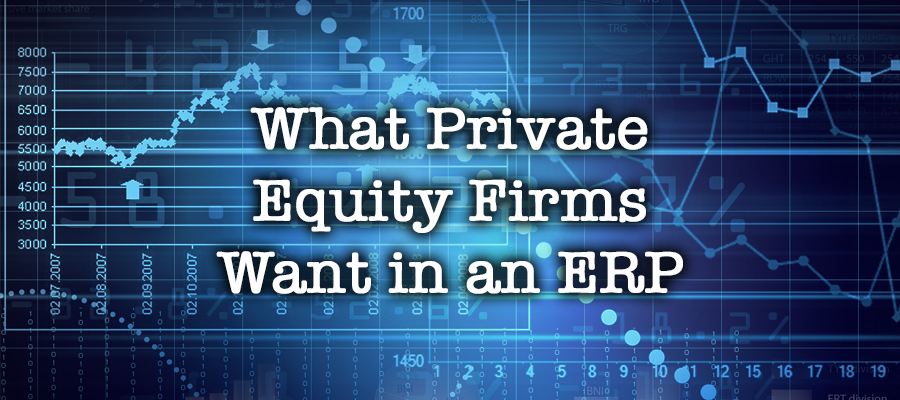As private equity firms look to expand their portfolio, they strive to work with businesses that have the potential to generate revenue, reduce waste, and provide overall value to boost returns. In the manufacturing world, achieving these goals is often dictated by having the right business management software in place.
Deacom has recently kicked off implementation with a number of manufacturers faced with such a challenge. So, we asked them:
What do private equity firms really want in an ERP?
- Centralized Data Visibility – Private equity firms often request reports at the drop of a hat. Unfortunately, common software environments require manufacturers to export data from various independent systems to generate critical reports. This can be a time consuming and manually laborious process when the deadline may not be so generous. By working with a centralized ERP platform, all stakeholders have the opportunity to access to real-time data across the entire business and potentially separate business entities. Timely responses with accurate data keep the investors happy and out of the weeds of day-to-day operations.
- Budgetary Control – The ERP industry has an unfortunate reputation for exceeding project budgets but it is important to know that not all ERP providers are the same in this manner. Some offer guaranteed fixed-price implementations which, while extremely rare to find, is perhaps one of the most valuable aspects of an ERP contract. Those that guarantee an unchanged implementation cost throughout the entire process will keep manufacturers within the budgets allocated by their private equity firms.
- Expansion Horsepower – How the business operates today does not necessarily determine how it will operate two years down the line. Perhaps the private equity firm has goals of going international, acquiring more businesses, or opening facilities across the country. No matter what it is, the selected ERP needs to have the ability to scale and facilitate that strategy seamlessly when the time comes.
- Merger & Acquisition Simplification – It’s common for private equity firms to acquire businesses that are similar to existing portfolio companies because it opens opportunities to share resources. As the firm continues to acquire new businesses, it should be a straightforward process to incorporate the new company onto the ERP platform. Since the ERP foundation from the first company is already in place, following implementations should be faster and more cost-effective.
- Strong Functionality Footprint – As businesses grow and evolve, so should the ERP solution. If it remains static, it will restrict the ability for the manufacturing business to easily drive profits. The ERP provider should not only deliver all your functional needs today, but also have the right strategy in place to enable customers to leverage the latest technology and capabilities of the system tomorrow. They should be committed to their own software’s evolution and have industry experts in-house that are continuously studying market trends and requirements. This approach enables manufacturers and their private equity firm to make a long-term investment in an ERP, not one that will force them to re-evaluate options in three to four years down the line.
As a portfolio company, finding the right ERP system is perhaps the most important decision you will make. Use the above suggestions from companies like yours to guide the process and make sure you select a solution that both strengthens operations and appeals to your private equity firm’s financial goals.

